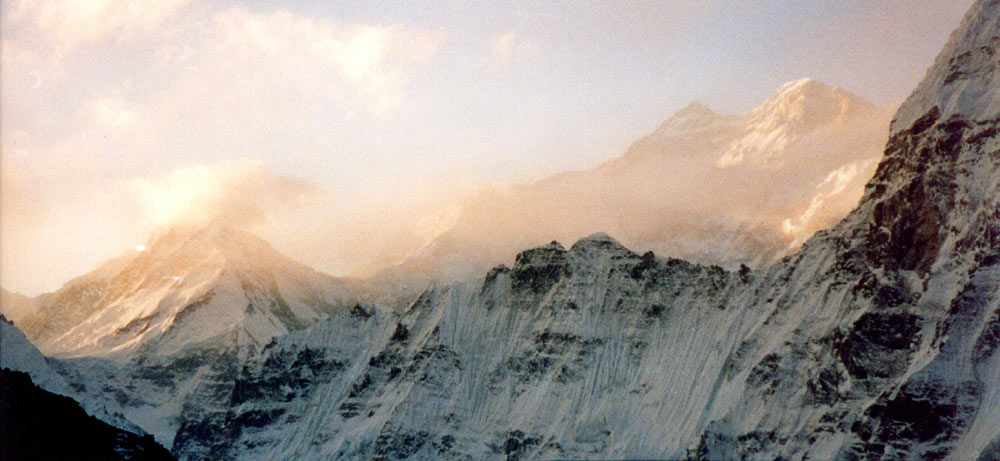Travelling with a Teenager
8:31 AM
Posted by Admin
Fed up with your teen whining on a family holiday? Here are some tips:
1. Involve them in the planning. Make sure there are one or two activities that appeal to their age.
2. Give them important tasks, such as mapping the route or researching the local attractions on the net.
3. Pick a destination that caters for all tastes or one that offers a new experience for the whole family.
4. Teens value their independence, so discuss curfews and limits before you leave. It may help clear the air.
5. Bring one of their friends along - if you can afford it.
The 5 Best Treks In Nepal
7:04 PM
Posted by Admin
1. The Langtang Region

A trek through the Langtang region will take you to 4,700 meters (15,419 feet) with excellent views of both the Annapurna region to the west and the Makalu region to the east. The trek also passes by Buddhist monasteries and a nature reserve renowned for animal viewing.
Perhaps the best thing about the 14-day trek is that it begins near, or even in, Kathmandu. This makes it very easy to organize and is an excellent option for those pressed for time or looking for an easy introduction to trekking in Nepal.
2. The Mt. Everest Circuit
Nestled in the Khumbu region, home to Sherpa and Tibetan Buddhist cultures, there are many reasons to visit this area of Nepal besides getting a glimpse of Chomolungma, as Everest is known to the people who live around her.

From Lukla, most trekkers head straight for Namche Bazaar and then on to Gorek Shep, a small town that provides unparalleled views of Mt. Everest. Going all the way to Everest base camp or making the route a loop by visiting the Gokyo Lakes (highly recommended) will both add days to the trip.
More Links:
- Best of Mt. Pinatubo Photos
- December 2005.MT PULAG, BENGUET
- Kota - Kinabalu ITINERARY
- Jan 2006 - MT KINABALU, MALAYSIA and BRUNEI
- March 2005 , PALAWAN
3. The Annapurna Circuit
The major trek in the west of Nepal is the Annapurna circuit. Reaching a height of 5,300 meters (17,388 feet), the circuit spends traverses the incredible mountains and glaciers of the Annapurna Conservation Area.

The Annapurna circuit is popular because it allows trekkers to pass through diverse terrain, from jungle to high alpine, and passes through a region dominated by Tibetan Buddhist culture. At one point, trekkers even have the opportunity to look into the heavily restricted Mustang Region, which extends all the way into Tibet itself.
4. The Annapurna Sanctuary
The Annapurna circuit itself does not actually go to the common base camp of Annapurna. It is the Annapurna Sanctuary trek, which also begins from Pokhara, that leads to the base of this impressive 8,091 meter (26,545 feet) mountain.

The trek takes between eight and ten days, round trip from Pokhara, and can be a real trial for the unacclimatized. The base camp, at 4,157 meters (13,638 feet), can also be reached as an extension from the Annapurna Circuit.
At the edge of the base camp is the memorial to Anatoli Boukreev. Boukreev, one of the world’s great mountaineers, was killed in an avalanche on the peak in 1997. For lovers of mountains and mountain lore, the experience is moving, to say the least.
5. Mt. Kangchenjunga Circuit
If you are looking for something a bit more remote and much less traveled, the trek to the base camp of Mt. Kangchenjunga (8,586 meters, 28,169 feet) may be just the thing.
It is best to plan at least 20 days to reach the base camp of the world’s third highest peak and return. Unlike the other treks on this list, the amenities on the Mt. Kangchenjunga route will be basic. While a tent is not required, expect meals of daal (lentils), rice, chapati (an unleavened bread), and the occasional vegetable curry.

Well off the beaten path, the Kanchenjunga Circuit is a great way to spend time with local Nepali people far away from the hordes of other trekkers who flood more popular treks in peak seasons. For more information on the Mt. Kanchenjunga Circuit, check out Andris Bjornson’s excellent guide at Matador Trips.
Author: David DeFranza
Subscribe to:
Comments (Atom)









